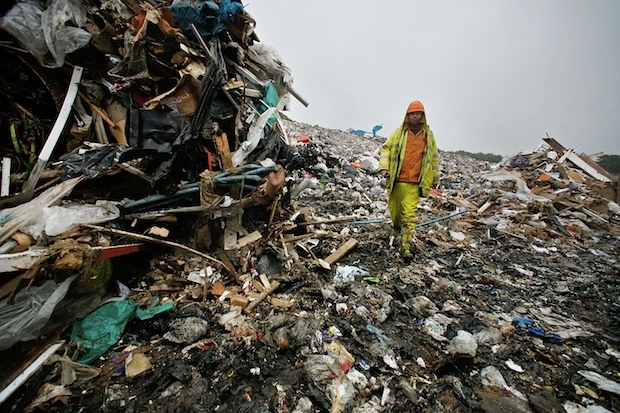The 2020 group of modernising, mostly 2010-intake, Conservatives is trying to muscle in on their party’s manifesto-writing process by producing an impressive number of reports that they hope the Tory brains trust writing the 2015 offer will hoover up. The latest, ‘Sweating our assets’: productivity and efficiency across the UK economy was led by Laura Sandys, with David Ruffley, Baroness Wheatcroft, Nicola Blackwood and Steven Barclay all contributing. It has some eye-catching proposals, such as a ban on certain products such as mobile phones going to landfill. But what is more interesting about this report is the way it is trying to frame a favourite argument of the modernisers.
When I interviewed Greg Barker in December, he suggested that the Conservatives needed to offer a ‘credible distinct centre-right pro-business entrepreneurial green offer’. Barker co-ordinates the 2020 group, and this report certainly seems to be a very serious attempt at making that offer. It isn’t the woolly, fluffy, hug-a-husky stereotypical green and environmentalist document that would instantly put off the rather less green characters in the Treasury and the Business department. Instead, Sandys’ report attempts to make a serious economic case for dealing with waste that paints the environmental benefits as a fortunate side-effect, rather than the main purpose of the policies it recommends.
For instance, it recommends measuring the value to the economy of a unit of energy saved, arguing that ‘this may show reduced GDP, but enhanced profitability to UK PLC’, and similarly a measurement of the economic value of a ‘unit of waste remade’. The MPs think waste policy should move from the Environment department to the Business department:
‘DEFRA will only ever look at waste from an environmental point of view, but, while environmental considerations are extremely important, reusing, remanufacturing, recycling and reducing landfill use will only be encouraged if waste is seen as an economic opportunity.’
The report lists the benefit of ‘remanufacturing’, where recycling and reusing become an industry in their own right. It argues that the government should ‘redefine waste as a business opportunity’ so that ‘a new stream of exciting business will emerge’.
This is all very clever. Instead of talking about greenery for greenery’s sake, the group is trying to sell its economic benefits. They recognise that times have changed since 2010, and that the green lobby inside the Conservative party will have to make their case far more aggressively than the days when greenery was politically fashionable.







Comments